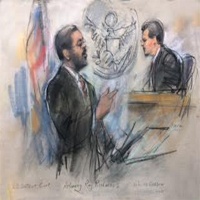Lincoln Park Criminal Lawyer, Michigan
Sponsored Law Firm
-
 x
x

Click For More Info:
-
Richards & Associates, PLLC
200 East Big Beaver Road Troy, MI 48083» view mapCriminal Defense Accomplished Criminal Defense Attorney
If you face criminal charges, you deserve an experienced defense lawyer who has a reputation for winning the tough cases.
800-844-5250
Jerard M. Scanland
✓ VERIFIEDAccident & Injury, Criminal, Divorce & Family Law, Traffic
Attorney Jerard Scanland focuses his practice on criminal law, family law, auto-accident, and landlord tenant cases. Having completed training for the... (more)
FREE CONSULTATION
CONTACTAnita Marie Bechmann
Juvenile Law, Other, Family Law, Criminal
Status: In Good Standing Licensed: 33 Years
Michael F. Ciungan
Criminal, Accident & Injury, Government
Status: In Good Standing Licensed: 43 Years
Luke A. Hennings
Wills & Probate, Estate Planning, Criminal
Status: In Good Standing Licensed: 15 Years
Daniel Melican
Criminal, Personal Injury, Accident & Injury
Status: In Good Standing Licensed: 39 Years
Arthur S. Brand
Family Law, Divorce & Family Law, Criminal, Consumer Bankruptcy
Status: In Good Standing
 Ray Richards Troy, MI
Ray Richards Troy, MI AboutRichards & Associates, PLLC
AboutRichards & Associates, PLLC Practice AreasSpecializations
Practice AreasSpecializations

